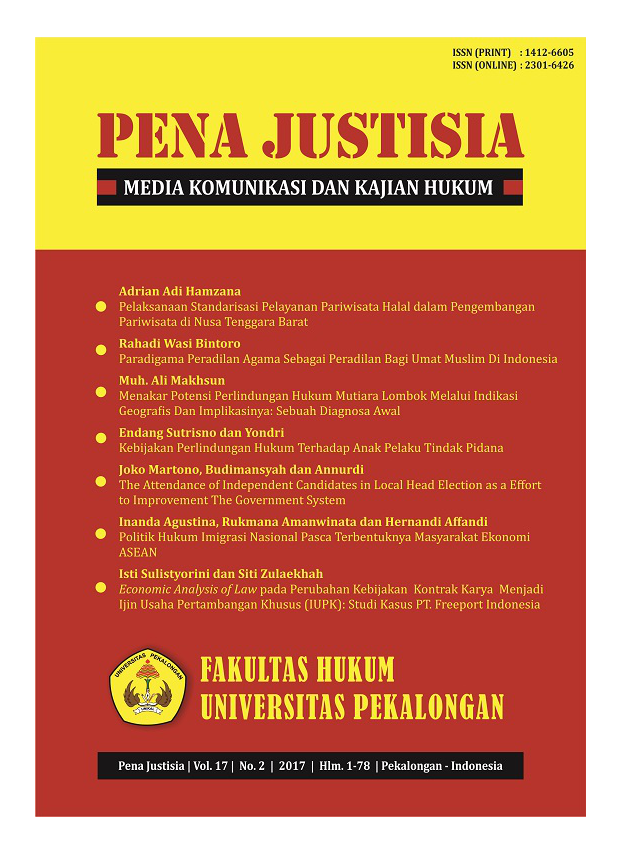An Analysis of The Imposition of Criminal Sanction to COVID-19 Vaccination Objectors Through the Lens of Criminal Law and Qiyas Shafi’i Mazhab in Indonesia
Zaki PriambudiSendy PratamaRamdhan Prawira Mulya IskandarNamira Hilda PapuaniNatasha Intania Sabila
Januari 2022
Januari 2022
Abstraksi
This article aims to answer whether vaccination is a right or an obligation and how criminal law and Qiyas Shafi'i Mazhab views the basic provisions of criminal law against vaccination objectors. By combining doctrinal and socio-legal research method, this article concludes that vaccination is an obligation because a person's personal right to choose health services, especially COVID-19 vaccination has turned into a public right. Vaccination is the government's obligation to protect public health as part of meeting health needs, following the mandate of the constitution and human rights. According to the relative punishment theory, the application of criminal sanctions is an effort made to maintain public order and peace of society, not as a means of repaying the perpetrator's mistakes. Thus, the sanctions imposed on the perpetrator are solely to provide fear so that they do not repeat their actions and other people do not follow them. There are three main objectives of relative theory, namely prevention, prevention, and reform. Whereas Qiyas Shafi'i Mazhab puts forward the application of qiyas as a justification for imposing criminal sanctions against vaccination objectors. Because a person is prohibited from doing something that endangers himself and others, punishment according to the Qiyas Shafi'i Mazhab can be applied. There are similarities between criminal law and Qiyas Shafi'i Mazhab to a view of the obligation to vaccinate, that is, both allow the reduction of individual human rights for the sake of common interests. Ultimately, this article recommends the need to regulate the handling of COVID-19 vaccination objectors through act so that vaccination and law enforcement can run comprehensively, not partially
Kata kunci
Pena Justisia Media Komunikasi dan Kajian Hukum
Issue No.1 vol.20, Januari 2022- Diterbitkan oleh Universitas Pekalongan

p-ISSN 1412-6605
e-ISSN 2301-6426
2024 Hak Cipta Milik Hukumonline.com





























